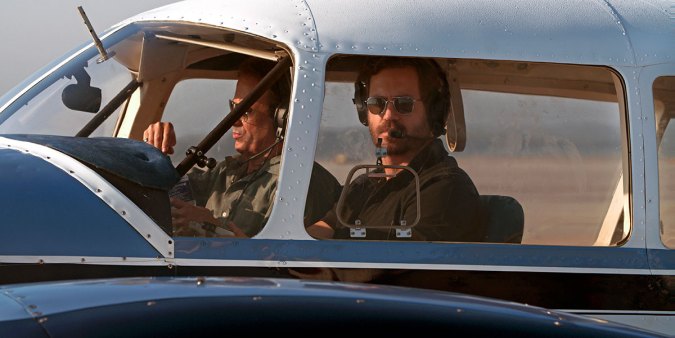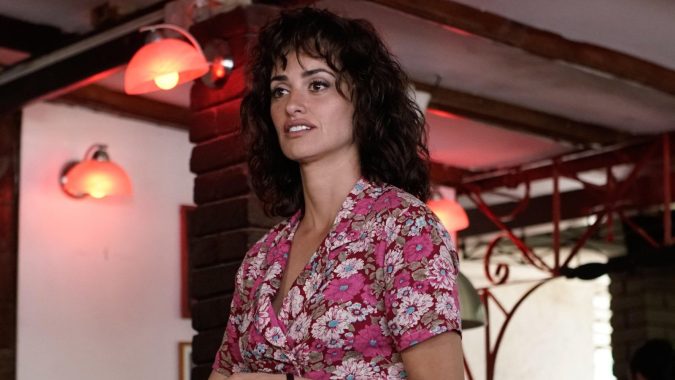“Oye, did you see the Cuban movie in Toronto?” My Cuban grandmother doesn’t usually talk to me about movies, so I know when she asked me about one, it must be important. I told her yes, that I had seen Agosto and thought it was a sweet coming-of-age drama set during the Special Period. “Not that one, the one with Penélope Cruz,” she said. “They were talking about it on the news.” Well, if the chatter about Wasp Network had already made it to Hialeah before the movie had even had its U.S. premiere, this was going to be big news.
The Cuban movie my grandmother asked about was actually directed by a French man and starred only one Cuban actress in a leading part, Ana de Armas. Based on Fernando Morais’ book The Last Soldiers of the Cold War: The Story of the Cuban Five, Olivier Assayas’ Wasp Network follows a group of Cuban spies sent to the U.S. to infiltrate anti-Castro Cuban-American groups. Unfortunately, that’s about all the facts that can be agreed upon, as the details of this story have long since drawn the ire of some in the exile community.
In the movie, René González (Édgar Ramírez) is the first to (supposedly) defect from Cuba for the United States in a thrilling escape in the early ’90s. His wife Olga (Penélope Cruz) is left distraught by his abandonment of their young daughter, and she faces the pain of living alone as a single mom and the spouse of a traitor. A few years after René’s great escape, Juan Pablo Roque (Wagner Moura) flees to Guantánamo Bay for the safety of the U.S. As former pilots for Cuba, both René and Juan Pablo are recruited by the Brothers to the Rescue organization to help stranded Cubans fleeing to the States and covertly run scouting missions along Cuba’s coast to aid in terrorist missions to disrupt the island’s tourism industry during an economically vulnerable time. Headed by spy ring leader Gerardo Hernández (Gael García Bernal), the covert group that includes the two men functions as a secret within a secret, with neither Olga or Juan Pablo’s girlfriend-turned-wife Ana Margarita (de Armas) knowing what their husbands are really up to.
For the screening at the New York Film Festival, a protester attempted to get the director’s attention on the red carpet even after Assayas voiced his support for democracy in Cuba. Outside, a few individuals called the movie Cuban propaganda and held signs saying “Wasp Network is a lie,” refuting the film’s premise that the Cuban spies were sent to the U.S. to infiltrate a terrorist organization run under the wing of the Brothers to the Rescue. In 1996, two planes of the Brothers to the Rescue piloted by Carlos Costa, Armando Alejandre, Jr., Mario de la Peña, and Pablo Morales were shot down by the Cuban government, the scenes of which are depicted in the film. Some ardent Cuban Americans have already called for boycotts of the film ahead of its release although Wasp Network has yet to secure U.S. distribution. Others have singled out de Armas for what they see as a betrayal of the exile community.


Deep-seated hatred for all things Castro-related aside, Wasp Network is first and foremost a spy thriller with all the twists, turns and changing allegiances we’ve come to expect from these kinds of stories. The movie’s sympathies lay with the Cuban families affected by the assignment, not the spies’ targets. René is portrayed as a devoted father whose loyalty to his country almost costs him his family. Juan Pablo’s more of a jerk, but that comes across in the way he treats Ana Margarita even before his character’s true unveiling. We know next-to-nothing about their enemy because they know little about them. To take that away would be to hobble the movie’s defining tension and alter the film’s point-of-view.
This was an ambitious project, even for a skilled director like Assayas. He told Variety that it was a difficult experience filming in Cuba during such a tense political time and that at first, the Cuban government had forbidden him to film on the island before eventually relenting and getting involved with the production (there are various scenes with Cuban warplanes and another sequence where a Cuban jail stood in for a U.S. prison). The filmmaker said at the NYFF press conference that René and Olga González, the movie’s main characters, were also unhappy about the movie.
On a technical level, Wasp Network is not Assayas’ finest work. It has the feel of a rushed term paper turned in just before the deadline. Assayas wrapped production on Wasp Network in May and quickly assembled a cut of the movie in time for its premiere at the Venice Film Festival on September 1. By the time Wasp Network screened at the Toronto International Film Festival a few weeks later, news broke that the director would be reediting the movie for its New York Film Festival screening.

To Assayas’ credit, the new cut is indeed an improvement from the first. Transitions feel smoother, there is less jumping around between storylines, a few music cues shortened and copious details dropped. The result is a sleeker movie that moves much easier through this already gripping and complex story. However, some choppiness remains. For some reason, the second half of the film feels as if it uses more fade to black transitions than the first, adding to the overall uneven look. There’s simply too much story to fit into 2 hours and some odd minutes, which led a number of critics to suggest that Wasp Network might have benefited from the miniseries treatment like his previous effort with Ramírez, Carlos.

There are other things that made the movie feel off. This is less noticeable in the new cut, but it’s still so strange to hear U.S. bands singing in English as the soundtrack to a story about Cubans trying to defeat Cuban-American terrorists. Thankfully, Ana Margarita’s character doubles as an innocent stand-in for most of the Cuban-American diaspora who have had no business with the F.B.I., spies or terrorist organizations, otherwise, the movie paints a rather bleak portrait of a community whose defining cinematic representation has so far been Scarface. There’s also a quick divergence into Russian which the script noticeably mishandles. René clumsily asks Juan Pablo if he can speak Russian from his Cuban military days, which is not something another Cuban would ask. If you were in the military in Cuba during the Cold War, which ends only a few years before the film’s events start, of course he would have been trained to speak Russian. It’s details like this that give Wasp Network a kind of extranjero detachment — it is neither for nor by us, on either side of the Cuba-U.S. divide, but from another outside perspective entirely.
A movie already to the left of the “Never Castro” crowd will not win over hearts and minds by this cast, no matter how good they are. Loaded with non-Cuban stars like Cruz, Ramírez, Moura and García Bernal, the famous Cuban accent is truly only heard from the Cuban extras and some supporting actors like de Armas. Cruz made the best effort to capture its cadence and phonetic quirks. At the NYFF conference, she said, “I love doing accents, but I think this one is this is one of my most favorite accents.” Cruz said she trained with a voice coach for several months to “get the accent to a point where we could improvise in the accent so then you don’t feel trapped [where] all you can do is say the dialogue at that moment. If you changed something, then we could have improvised.” To her, the accent was crucial to her character just as much as her physical performance. “It was an advantage to have the accent,” she said. “[I could] have the specific feeling, rhythm and specific personality.”
Moura’s accent is inconsistent but not too shabby, either. His dialogue in Spanish is limited though, as his character often switches to English or Russian — likely due to the Brazilian actor’s loose grasp on the Spanish language. García Bernal’s character is supposed to be a Cuban passing off as a Puerto Rican, so his irregular accent has more of an on-screen reason behind it. Ramírez insisted that his accent was closer because he’s from Venezuela. “The Caribbean is a nation and Cuba, Puerto Rico, Venezuela, Northern Colombian, Panama, Dominican Republic — we pretty much share the same beat,” he said at the NYFF press conference. “One sentence is just one word.”
Olivier was attracted to this story not by political reasons, but politics is an inseparable part of every frame. “I read it, and I just loved the material,” he said at NYFF. “It felt extremely complex, extremely difficult. I thought there was a story somewhere inside the book about these events because it’s important that he describes the underground conflict that has been ongoing between Cuba and the U.S. during the last half-century. It’s what I had been looking for a while — for something that could reunite me with Édgar. We wanted to work together again after Carlos.” As with so many things involving Cuba, no story is ever so simple on or off the island. Inadvertently, Wasp Network will become this 60-year saga’s latest test case.
The Wasp Network screened at the Toronto International Film Festival and New York Film Festival.




